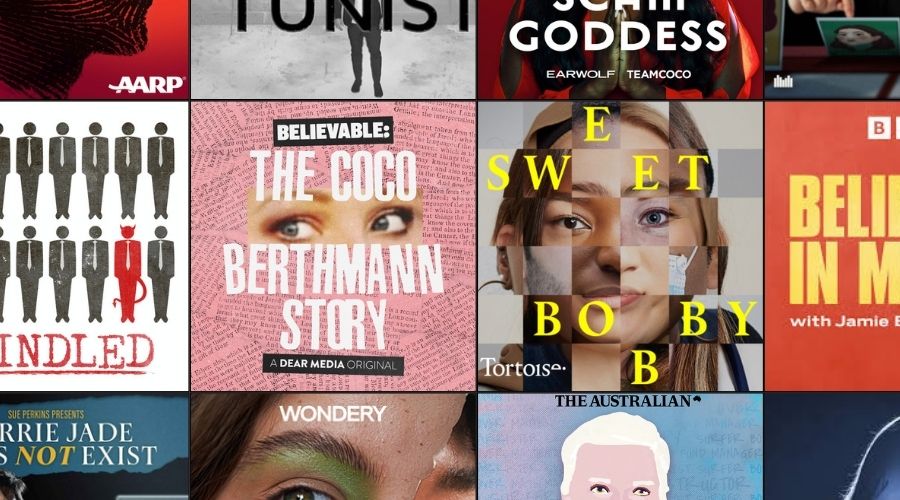How To Write Podcast Show Notes
Taking your business to the next level by starting a podcast? Or maybe you already have a podcast and you want to streamline the process a little bit. Either way, it’s time to start saving time and energy by creating show notes before you record each episode. Show notes are written content about each of your podcast episodes that give your listeners a preview or overview of the episode. It’s that easy! Not to be confused with podcast summaries, though—which are a quick overview of the episode, or episode transcripts, which are word-for-word dictations of the whole episode.
Instead, show notes are comprehensive write ups of what happens in each episode. They often include detailed summary of topics, links to additional resources, and calls to action or CTAs. And, there are some key advantages of releasing show notes with each and every episode.
Not only do they add more value to your podcast content, but they also help drive more traffic to your podcast. Text-based content is easier to find using search engines. Therefore, show notes can help you podcast popular higher in the search engine results and give your listeners a better idea of what to expect from each episode. Basically, if you want people to start prioritizing YOUR podcast, this is a key step. Ready to learn those most important tips? Let’s dive in!
How To Write Podcast Show Notes
Use SEO-friendly titles and content.
SEO, or search engine optimization, is the process of adding valuable links and keywords to your blog posts, show notes, transcripts, etc., in order to rank higher on search engines such as Google and Bing. When you use common keywords in your episode titles and show notes content, the same keywords that listeners use when searching for content, listeners are more likely to come across your content and travel to your website.
To search for these keywords, you can use a keyword generator such as Wordstream, GrowthBar, Tong Tail Pro, or Moz Keyword Explorer.
Summarize main points (but don’t give too much away!)
The majority of your show notes will be devoted to summarizing the main points of the episode. Here, you’ll want to tell the listener what they can expect from your episode, but without giving too much away. You don’t want to tell the listener everything, because then there is no reason to actually listen to the podcast episode.
Instead, you want to create suspense. Give the reader a reason to click play and listen to the episode. Tell the reader the exciting things they will learn, but only if they listen.
Write the show notes while planning each episode.
Don’t wait until the last minute, after you’ve already recorded your episode to write show notes. Start as soon as you begin planning each episode. After all, successful podcasts start with good planning. Not only will it take you less time to complete your show notes later, but it allows you to use your show notes as a sort of guide/outline as you record your podcast as well.
Include guest bios and resource links.
When hosting guests, be sure to always include a guest biography in your show notes. The guest bio should include who your guest is, what they do, and what knowledge they bring to the table in your podcast niche. Guest bios will intrigue your listeners and make them want to know more.
Be sure to also include resource links, affiliate or product links, and any other additional information that you want your listeners to know. These resources can be spread out in your show notes or you can dedicate a special section in your show notes to list them. Either way is totally fine.
Create a dedicated section for CTAs.
CTA is an acronym for call-to-action. Whether you’re calling upon your listeners to purchase your merch, follow you on social media, donate to charity, vote, or simply listen to other episodes of your podcast, you should designate a whole section of your show notes for CTA’s. CTAs not only increase listener engagement, but they promote listener interaction and add value to your podcast content.
Include key points, take-aways, and a memorable quote.
This section of your show notes will likely be the most interesting and the most comprehensive. In this section, you will list 3-5 key takeaways from your episode and elaborate on them a bit. These key takeaways should be 1-2 sentences long max and should entice the listener to click on over to the full podcast for additional information.
This section will differ from the summary section in that the summary will be an overview, whereas the key takeaways will be specific information, key statistics, or special quotes from the episode.
Add timestamps.
As you list each key point, also add the timestamp. Adding the timestamp lets your listeners know at what point in the podcast episode they can find the information they most desire. Not only will listeners appreciate this, but it will encourage them to listen to some, if not all, of the podcast episode.
Podcast Show Notes Template
Date:
Start by adding the date that your podcast episode was released.
Name of podcast:
Add the name of your podcast.
Episode title & number:
Under your podcast name, add your SEO-friendly title and episode number.
Brief summary of episode:
Next, add a quick summary of your episode. Here, you’ll want to briefly discuss any special guest(s) and tell your listeners what they can expect from this episode. Use this section to build suspense and draw those listeners in. This section should be around 200 words.
Bullet points of key takeaways:
After your summary, make a quick bulleted list (just 3-5 bullets) of the key takeaways. These are the 3-5 things that your listeners will learn, or take away, from listening to your podcast. Remember, the key here is to make sure that you don’t give away too much information.
Calls to action/resources:
And finally, end with a call to action or by including links to products, affiliate links, resources mentioned in the episode and/or additional resources, or merch for your listeners to check out.
Knowing how to create good podcast show notes can help you increase the quality and popularity of your podcast!
Show notes can be a valuable addition to your podcast content. They can increase listener engagement, broaden your audience, and improve your search engine results – all of which result in increased popularity of your podcast.
Just starting a podcast? No problem! For more information on the world of podcasting, check out the Dear Media Blog. There, you will find a plethora of podcasting tips on everything from how to title podcast episodes to how to monetize your podcast. And, as always, we post everything from health and wellness tips to relationship advice. Also, check out the DM shop for all of the latest must-have products. You’re definitely gonna need this “I Talk About You On My Podcast” Tee.




















Leave a Reply